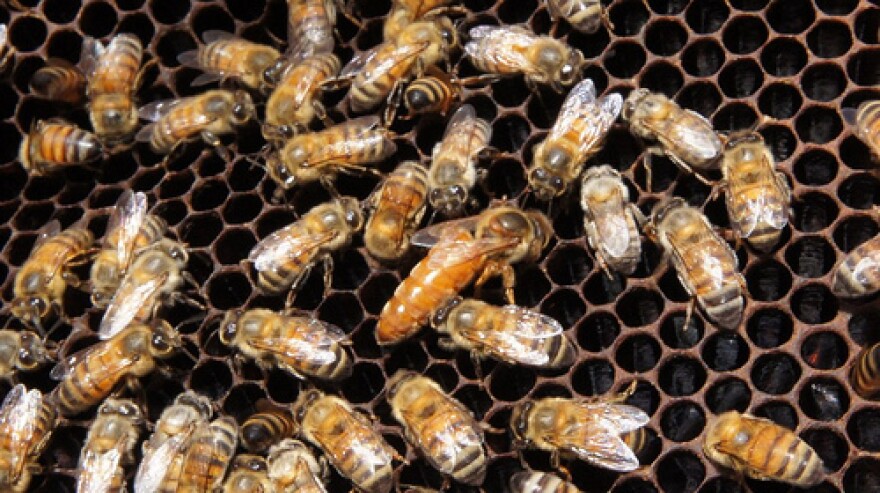Five stories that have Texas talking: “Killer Bees” swarm in central Texas, Gov. Perry goes after jobs in other states with Texas swagger, hate speech charted through Twitter and more.
A Central Texas man was killed over the weekend after being stung to death by Africanized bees. Larry Goodwin, a 62-year-old resident of Moody, reportedly drove his tractor into a wood pile that concealed a hive of “killer bees.” The bees swarmed him, and two women tried to help, but they were stung, too. Goodwin was pronounced dead at the scene. Family members say every square inch of his exposed skin was covered in stings.
Allen Miller, the bee removal specialist who got rid of the giant hive from Saturday’s attack, estimates there were 40,000 bees inside it. He says he’s run into five cases of Africanized hives in the last month, and that’s more than he usually sees all year. [NBC News]
- Blue States Seeing Red: Gov. Rick Perry’s bold campaign to lure companies to Texas is making some prominent Democrats hot under the collar. With the promise of a low taxes and a pro-growth atmosphere, Perry is buying up radio time and ad space in states like California and Illinois. He wants businesses to move to the Lone Star State, plain and simple. He wasn’t mincing words with this full-page ad in Crain’s Chicago Business: “If you’re a business owner in Illinois, I want to express my admiration for your ability to survive in an environment that, intentionally or not, is designed for you to fail. There is an escape route to economic freedom … a route to Texas.” Is this smart marketing or has Perry gone too far? Politico lets the experts weigh in.
- 40 Years Later, Town Still Feels Tornado: The whole country was watching Oklahoma Friday as another round of severe weather blitzed the Sooner State. And the news wasn’t good; most media outlets are reporting 13 dead, including children and storm chasers, and experts say a handful of people are still missing. With the May 20 tornado in Moore and the deadly Granbury twister fresh in our minds, NPR’s Noah Adams takes us back in time to 1974’s Xenia, Ohio. The town near Dayton was gutted by a tornado on April 3. The storm was so powerful, railroad cars were derailed and thousands of buildings were destroyed. When the dust cleared, 33 people lost their lives and hundreds were injured. Hear from Xenia residents today about how far they’ve come, and how close they keep their memories.
- Rockwall Educates Parents About Teen Suicide: After two young students took their own lives this spring, Rockwall ISD is trying to keep parents plugged into the realities of teen suicide. Tomorrow night at 6:30 a forum called “Just Talk About It” will be held at the Rockwall High Performing Arts Center. This comes after eighth grader Brianna Escobedo fatally shot herself May 22 and Rockwall High School freshman Hanna Clark committed suicide in late April. Hanna’s parents, Tim and Raina Clark, told the Dallas Morning News they didn’t see any warning signs. “There’s no doubt in my mind that this was an impulse suicide,” says Tim Clark. “It has been a nightmare, an absolute nightmare, because she was everything to us. She was so full of life.”
- Is Twitter A Compass For Hate Speech?: A Humboldt State University professor and a team of students sifted through 150,000 negative tweets, looking specifically for racial slurs and hate speech against sexual preference. It wasn’t hard to find, nor was it difficult to plot on a map. Some states like California didn’t have much hate speech, but it was a different story in Texas. The term “wetback,” which ties Latinos to illegal immigration, was most used in the Lone Star State, but interestingly enough, not necessarily in communities near the border. [NPR]






